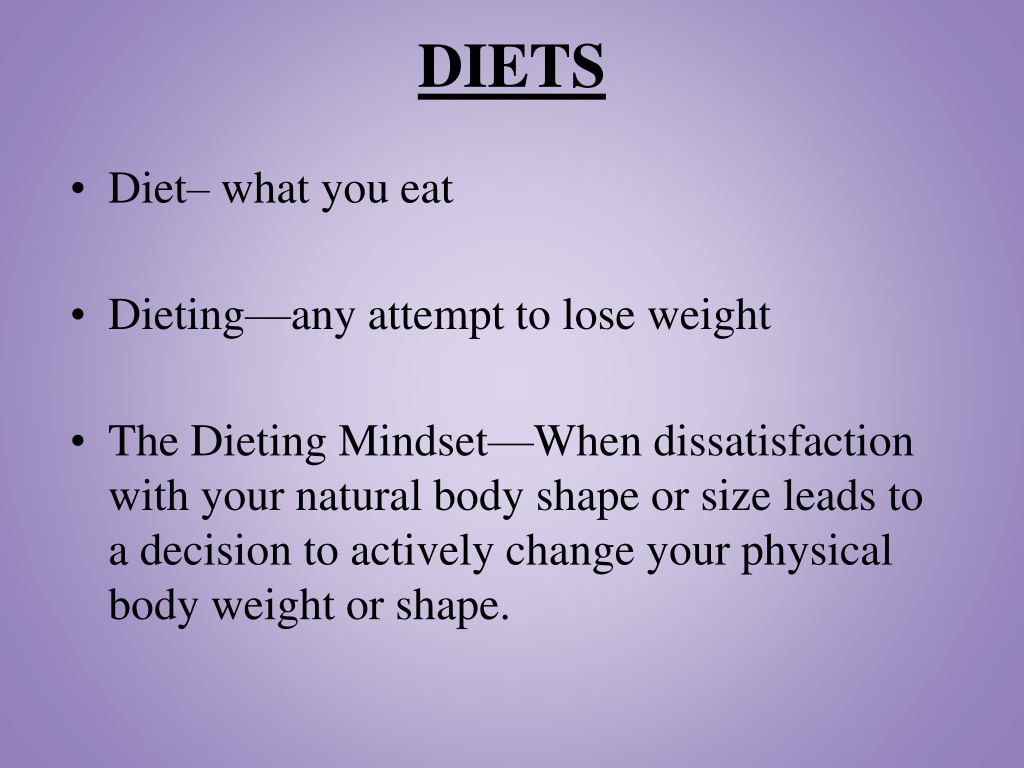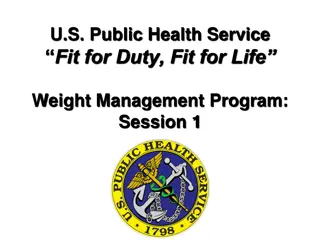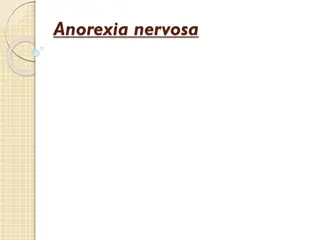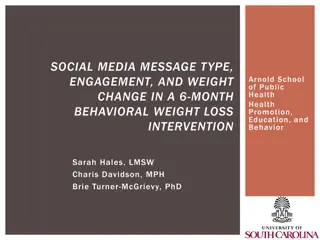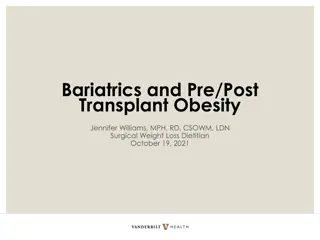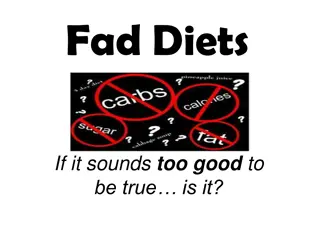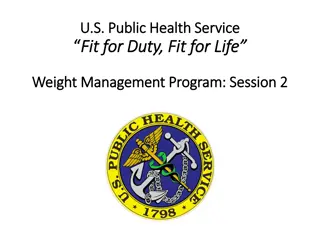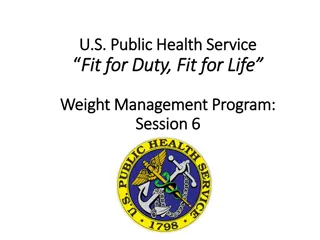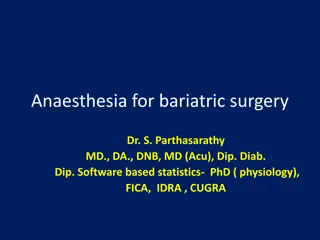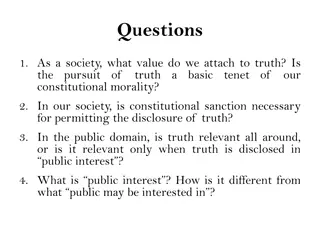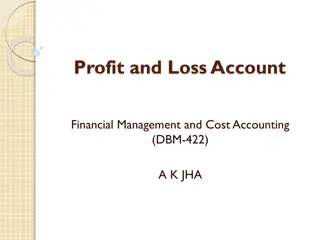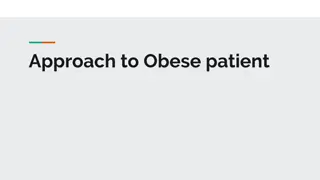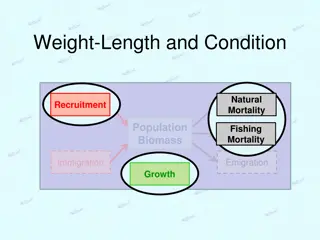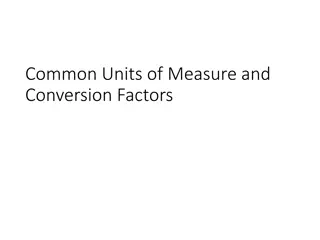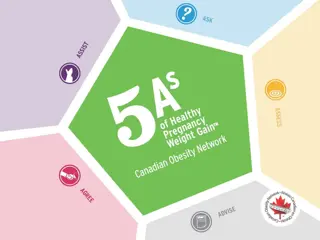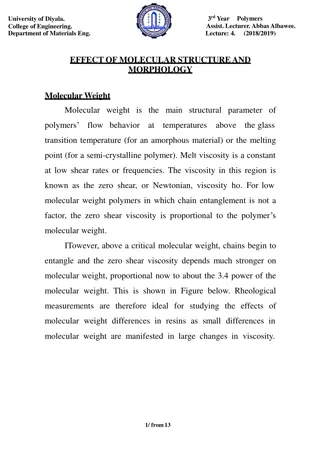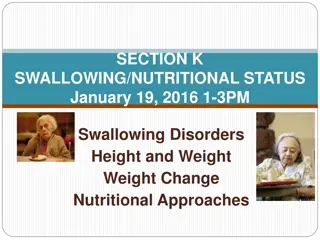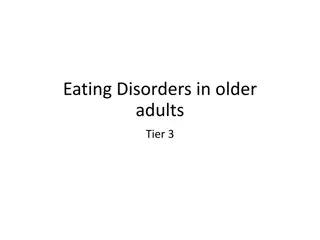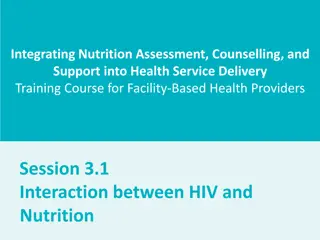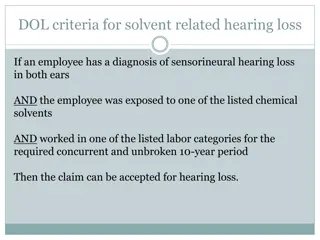The Truth About Dieting and Weight Loss
Dieting is a common approach to losing weight, but it often leads to negative consequences and rarely works in the long term. Yo-Yo dieting, missing out on nutrients, and experiencing physical side effects are some of the risks associated with dieting. Instead of focusing on temporary solutions, prioritizing healthy eating and regular exercise is essential for sustainable weight management.
Download Presentation

Please find below an Image/Link to download the presentation.
The content on the website is provided AS IS for your information and personal use only. It may not be sold, licensed, or shared on other websites without obtaining consent from the author. Download presentation by click this link. If you encounter any issues during the download, it is possible that the publisher has removed the file from their server.
E N D
Presentation Transcript
DIETS Diet what you eat Dieting any attempt to lose weight The Dieting Mindset When dissatisfaction with your natural body shape or size leads to a decision to actively change your physical body weight or shape.
Americans spend more than $40 billion dollars a year on dieting and diet-related products. That s roughly equivalent to the amount the U.S. Federal Government spends on education each year. It is estimated that 40-50% of American women are trying to lose weight at any point in time.
STAY AWAY FROM: Fad diets Sweat loss diets Infomercials and pop-ups Gadgets that claim to make you lose weight Diet Pills Remember they are not approved by the FDA!!
IF THERE WAS A MAGIC PILL, THERE WOULD BE NO MORE GYMS!!
DIETING Dieting rarely works. 95% of all dieters regain their lost weight and more within 1 to 5 years. Dieting can be dangerous!!
WHAT TO DO: EAT RIGHT & EXERCISE !!!
DIETING Yo-Yo dieting repetitive cycles of gaining, losing, & regaining weight Shown to have negative health effects, including increased risk of heart disease, long- lasting negative impacts on metabolism, etc. Forces body into starvation mode slowing down many of its normal functions, including metabolism.
DIETING Dieters often miss out on important nutrients. For example, dieters often don t get enough calcium, leaving them at risk for osteoporosis, stress fractures, and broken bones.
DIETING Dieters often experience physical consequences such as: loss of muscular strength and endurance decreased oxygen utilization thinning hair loss of coordination dehydration and electrolyte imbalances fainting, weakness, and slowed heart rates
DIETING Impacts your mind -- When you restrict calories you restrict your energy, which in turn can restrict your brainpower. Medical studies indicate that people on diets have slower reaction times and a lesser ability to concentrate than people not on a diet.
DIETING All of stress and anxiety about food and weight that preoccupy dieters actually can consume a portion of a dieters working memory capacity. Numerous studies link chronic dieting with feelings of depression, low-self-esteem and increased stress.
DIETING It s about a HEALTHY weight! Eat Smart!! You could save time and energy for other activities and interests. Take care of body and make sure you re fueling it with a nutritional balance of foods, but don t allow the way your body curves determine how you feel about yourself! You are worth so much more than what you weigh.
